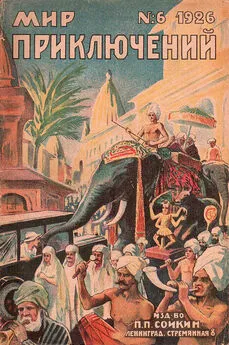Говард Рейнгольд - Умная толпа
- Название:Умная толпа
- Автор:
- Жанр:
- Издательство:ФАИР-ПРЕСС
- Год:2006
- Город:Москва
- ISBN:5-8183-1004-3
- Рейтинг:
- Избранное:Добавить в избранное
-
Отзывы:
-
Ваша оценка:
Говард Рейнгольд - Умная толпа краткое содержание
Мобильная связь и повсеместная компьютеризация уже начинают менять способы общения, трудовой и творческой деятельности, торговли, управления. Информационные технологии и их многообразное воздействие на различные сферы жизни общества — такова тема книги, предлагаемой вниманию читателей. Через десять лет, утверждает автор на основании многочисленных исследований, наблюдений и интервью, основные места средоточия населения Земли будут наводнены микросхемами, способными общаться друг с другом. Люди, оснащенные такими устройствами, составят «умные толпы», и их общение обретет невиданные прежде формы и возможности.
Для широкого круга читателей.
Умная толпа - читать онлайн бесплатно полную версию (весь текст целиком)
Интервал:
Закладка:
23. Geographic Information Systems, http://www.usgs.gov/research/ gis/title.html (29 March 2002).
24. David Gelernter, Mirror Worlds, or: The Day Software Puts the Universe in a Shoebox. How It Will Happen and What It Will Mean (Oxford: Oxford University Press, 1992).
25. William Shaw, «In Helsinki Virtual Village…», Wired 9. 03, March 2001, 157-163, « http://www.wired.eom/wired/archive/9.03/helsinki.html » (29 March 2002).
26. C. Alexander et al., A Pattern Language (New York: Oxford University Press, 1977).
27. Silberman, «Just Say Nokia».
28. Richard Quest, «Nokia Keeps Finland Mobile», Time, 157, 4 June 2001, « http://www.time.com/time/interactive/business/nokia_np.html » (12 October 2001).
29. Klee and Bensko, «The Future Is Finnish».
30. Puneet Gupta, «Short Message Service: What, How and Where?», Wireless Developer Network, « http://www.wirelessdevnet.com/channels/ sms/feamres/sms.html » (4 February 2002).
31. Michael Pastore, «SMS Continues to Take Messaging World by Storm», Cyberatlas, 4 April 2001, « http://cyberatlas.internet.com/mar-kets/wireless/article/0,10094_733811,00.html » (28 January 2002).
32. Logica, «SMS to Drive Wireless Internet Forward», 26 June 2000, « http://www.nua.ie/surveys/index.cgi?f=VS amp;artid=905355866 amp;rel=trae » (28 December 2001).
33. Howard Rheingold, The Virtual Community: Homesteading on the Electronic Frontier (Reading, Mass.: Addison-Wesley, 1993).
34. Kasasniemi and Rautianen, «Mobile Culture of Children and Teenagers in Finland».
35. Pasi Maenpaa, «Mobile Communication as a Way of Urban Life», in Ordinary Consumption, ed. Jukka Gronow and Allen Warde (London: Routledge, 2001), 107-124.
36. Tuomas Toivonen, unpublished thesis, Helsinki University of Technology, 2001, « http://www.aula.ee/hakuhodo/aula_thesis/ » (22 January 2002).
37. Alan Goldstein, «Information-Sawy Sweden Offers a Glimpse into the Future of the Mobile Internet», Dallas Morning News, 29 March 2001, « http:// www.mformobile.com/main.asp?pk=13755 amp;pollid=x » (1 August 2001).
38. Maija Pesola, «Simplicity Seems the Key for Location-Based Mobile Phone Games», Wireless Word, 20 July 2001.
39. Anne Torres, «4 Sme, Txtng is Lyf», The Feature, 18 April 2001, « http://www.thefeature.com/index.jsp?url=article.jsp?pageid=10667 » (11 January 2002).
40. Benjamin Pimentel, «Cell Phone Craze May Be Key to Philippines' Future», San Francisco Chronicle, 11 February 2001, « http:// www.sfgate.com/cgi-bin/article.cgi?file=/chronicle/archive/2001/02/ll/ BU166485.DTL » (24 May 2001).
41. Torres, «4 Sme, Txtng is Lyf».
42. Xinhua News Agency, «Thailand: Mobile Phone Network Paralyzed by Flood of Love Messages», 15 February 2001, « http:// www.ayg.com/sms/Article.po?id=339231 » (20 January 2002).
43. Orange.com , «The Survey Said: Text Messaging the Ultimate Flirting Tool», 26 March 2001, « http://www.orange.com/english/ press_releases.html » (15 July 2001).
44. Leopoldina Fortunati, «The Ambiguous Image of the Mobile Phone», in Communications on the Move: The Experience of Mobile Telephony in the 1990s, ed. L. Haddon, a report to the COST248 work group, sponsored and published by Telia, AB. « http://members. aol.com/ leshaddon/OINTRO.html »
45. Mark Ashurst, «Africa: Now, a 'Quiet Revolution': Mobile Phones Leapfrog an Obstacle to Development», Newsweek International, 27 August 2001.
46. Sadie Plant, «On the Mobile: The Effects of Mobile Telephones on Social and Individual Life», « http://www.motorola.com/mot/documents/0,1028,297,00.doc » (11 November 2001).
47. Douglas Century, «Motorola Versus Blackberry: Texting Cultures, A World Divided into Two-Way-Pager Camps», 14 January 2001, « http:// www.xent.com/dec00/0761.html » (28 January 2002).
48. Fushi Tarazu, «DoCoMo's i-Mode Abroad?», The Motley Fool, 11 December 2000, http://www.fool.com/community/views/2000/ view001211.htm?ref=yhoomk» (23 February 2001).
49. Tony Emerson, «The Next Big Thing», Newsweek, 6 August 2001, « http://www.msnbc.eom/news/606561.asp#BODY » (12 January 2002).
50. Julian E. Barnes, «For Cellphone Holdouts, Worry Closes the Sale», New York Times, 19 September 2001, C6.
51. Simon Romero, «The Simple BlackBerry Allowed Contact When Phones Failed», New York Times, 20 September 2001, « http:// www.nytimes.com/2001/09/20/technology/circuits/20BERR.html » (28 January 2002).
52. Stewart Brand, «Founding Father: Interview with Paul Baran», Wired 9.03, March 2001, « http://www.wired.eom/wired/archive/9.03/ baran.html » (13 May 2001).
53. Ling and Yttri, «Hyper-Coordination via Mobile Phones in Norway».
54. Mark Aakhus and James Katz, eds., Perpetual Contact: Mobile Communication, Private Talk and Public Performance (Cambridge: Cambridge University Press, 2002).
55. Erving Goffman, The Presentation of Self in Everyday Life (Garden City, N. Y: Doubleday, 1959).
56. Ling and Yttri, «Hyper-Coordination via Mobile Phones in Norway», 159.
57. Garfalk, «Kids on the Move».
58. Alex S. Taylor and Richard Harper, «Talking 'Activity': Young People and Mobile Phones», paper presented at the CHI 2001 (Conference on Human Factors in Computing Systems), Seattle, 31 March-5 April 2001, « http://www.es.colorado.edu/~palen/chi_workshop/papers/ TaylorHarper.pdf » (24 February 2002).
59. Ling and Yttri, «Hyper-Coordination via Mobile Phones in Norway».
60. Alexandra Weilenmann and Catrine Larsson, «Local Use and Sharing of Mobile Phones», in Wireless World: Social and Interactional Aspects of the Mobile Age, ed. B. Brown et al. (London: Springer-Verlag, 2001), 95.
61. Marko Ahtisaari, «Social Mobility», Out of the Blue — The J. Walter Thompson Magazine for Europe, Winter 2000/2001, 26.
62. Leslie Haddon, «The Social Consequences of Mobile Telephony: Framing Questions», in The Social Consequences of Mobile Telephony The Proceedings from a Seminar About Society, Mobile Telephony and Children, Telenor R amp;D N 38/2000, eds. Rich Ling and Kristin Trane, 26 June 2000, 2-6, « http://www.telenor.no/fou/prosjekter/Fremtidens_Brukere/ seminarer/mobilpresentasjoner/Proceedings%20_FoU%20notat_.pdf » (31 January 2002).
63. Erving Goffman, «Alienation from Interaction», in Communication and Culture, ed. Alfred G. Smith (New York: Holt, Rinehart and Winston, 1966).
64. Plant, «On the Mobile».
65. Leysia Palen, Marilyn Salzman, and Ed Youngs, «Discovery and Integration of Mobile Communications in Everyday Life», Personal and Ubiquitous Computing Journal, vol. 5 (2001): 109-122, « http://www.cs.colorado.edu/%7Epalen/Papers/cscwPalen.pdf » (5 February 2002).
Глава 2
1. David Hume, A Treatise of Human Nature, ed. Ernest С Mossner (New York: Viking, 1986).
2. Netscan, « http://netscan.research.microsoft.com » (5 February 2002).
3. Howard Rheingold, The Virtual Community: Homesteading on the Electronic Frontier (Reading, Mass.: Addison-Wesley, 1993).
4. Erving Goffman, The Presentation of Self in Everyday Life (Garden City, N. Y: Doubleday, 1959).
5. Matt Ridley, The Origins of Virtue: Human Instincts and the Evolution of Cooperation (London: Penguin, 1996).
6. Garrett Hardin, «The Tragedy of the Commons», Science 16? (13 December 1968): 1243-1248.
7. Thomas Hobbes, Leviathan, ed. Richard E. Flathman and David Johnston (New York: W. W Norton, 1997) [на рус. яз. Томас Гоббс. Сочинения в 2 т. М.: Мысль, 1991, т. 2].
8. John Locke, Two Treatises of Government (New York: Prentice-Hall, 1952) [на рус. яз.: Два трактата о правлении // Джон Локк. Соч. в 3 т. / Пер. с англ Е. Лагутина и А. Субботина. — М., 1985-1988. — Т. 3].
9. Mancur Olson Jr., The Logic of Collective Action: Public Goods and the Theory of Group (Cambridge: Harvard University Press, 1965) [на рус. яз.: Манкурю О. Логика коллективных действий: Общественные блага и теория групп / Пер. с англ. Е. Окороченко. — М.: Фонд экономических инициатив (ФЭИ), 1995].
10. Mancur Olson Jr., «The Logic of Collective Action», in Rational Man and Irrational Society, ed. Brian Barry and Russell Hardin (Beverly Hills, Calif: Sage, 1982), 44.
11. Elinor Ostrom, Governing the Commons. The Evolution of Institutions for Collective Action (Cambridge: Cambridge University Press, 1990).
12. Ridley, The Origins of Virtue.
13. Ostrom, Governing the Commons, 27.
14. H. Scott Gordon, «The Economic Theory of a Common-Property Resource: The Fishery», Journal of Political Economy 62 (1954): 124-142; Anthony D. Scott, «The Fishery: The Objectives of Sole Ownership», Journal of Political Economy 65 (1955): 116-124.
15. Charlotte Hess, «Is There Anything New Under the Sun? A Discussion and Survey of Studies on New Commons and the Internet», presented at Constituting the Commons: Crafting Sustainable Commons in the New Millennium, the Eighth Conference of the International Association for the Study of Common Property, Bloomington, Indiana, 31 May-4 June 2000.
16. Ostrom, Governing the Commons, 25.
17. Marc A. Smith, «Mapping Social Cyberspaces: Measures and Maps of Usenet, a Computer Mediated Social Space» (Ph. D. diss., UCLA, 2001), 18.
18. Thomas Henry Huxley, «The Struggle for Existence in Human Society», in Evolution and Ethics, and Other Essays (London, 1894), 202-218.
19. Peter Kropotkin, Mutual Aid: A Factor of Evolution (Montreal: Black Rose Books, 1989), 78.
20. Stephen J. Gould, Bully for Brontosaurus: Reflections on Natural History (New York: W. W. Norton, 1991).
21. Kropotkin, Mutual Aid, 171.
22. J. Paradis and G. С Williams, Evolution and Ethics: Т. Н. Huxley's Evolution and Ethics with New Essays on Its Victorian and Sociobi-ological Context (Princeton: Princeton University Press, 1989).
23. W. D. Hamilton, «The Genetical Evolution of Social Behavior», Journal of Theoretical Biology 7 (1964): 1-52.
24. Richard Dawkins, The Selfish Gene (Oxford: Oxford University Press, 1976).
25. Hobbes, Leviathan, 95. Левиафан, часть II «О государстве», глава XVII, «О причинах, возникновении и определении государства» // Т. Гоббс. Соч. в 2 т. / Пер. на рус. яз. А. Гутермана. — М.: Мысль, 1991. — Т. 2. — С. 132.
26. John von Neumann and Oskar Morgenstern, Theory of Games and Economic Behavior (Princeton: Princeton University Press, 1944) [рус. пер.: Теория игр и экономическое поведение. М.: Наука, 1970].
27. William Poundstone, Prisoner's Dilemma: John von Neumann, Game Theory, and the Puzzle of the Bomb (New York: Doubleday, 1992).
28. J. Bronowski, The Ascent of Man (Toronto: Little, Brown, 1973).
29. Herman Kahn, On Thermonuclear War (Princeton: Princeton University Press, 1960).
30. Jean-Jacques Rousseau, A Discourse on Inequality (London: Penguin, 1984). [на рус. яз.: Рассуждение о происхождении и основаниях неравенства между людьми // Ж.-Ж. Руссо. Трактаты / Пер. с франц. А. Хаютина. — М.: Наука, 1969. — С. 75).
31. Merrill M. Flood, «Some Experimental Games», Research Memorandum RM-789 (Santa Monica, Calif.: RAND Corporation, 1952).
32. A. W Tucker, «On Jargon: The Prisoner's Dilemma», UMAP Journal 1 (1950): 101.
33. Robert Axelrod, The Evolution of Cooperation (New York: Basic Books, 1985).
Читать дальшеИнтервал:
Закладка:







